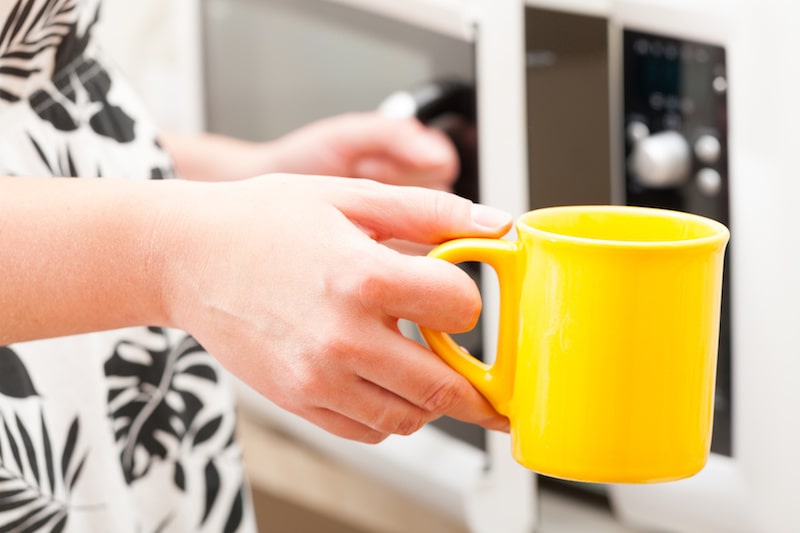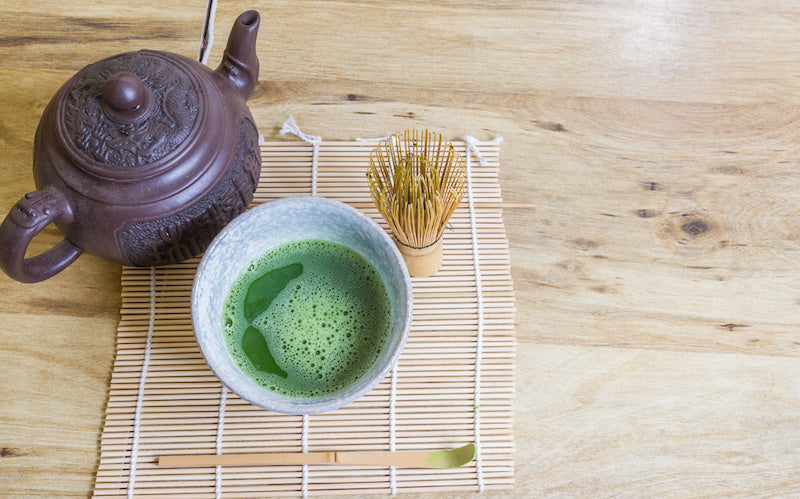Traditions and green tea go hand in hand. Green tea is steeped (pun intended) in ritual and history through centuries of consumption. The idea that tea connoisseurs have perfected the best brewed green tea is not a difficult concept to embrace. It isn’t surprising that there has been a lot of research done on green tea.
After centuries of green tea, you would think everything that needs to be known is known about this most beneficial drink. After all, science has determined that green tea is one of the most beneficial beverages available for consumption. Its health benefits are numerous.
I respect science and its research, after all it is one of the things that has made our product outstanding in the market. Always with an open mind, we journeyed into the unknown with this question, “Is using the microwave good for green tea?”
In pursuit of the definitive answer between the purist versus the scientist, even we were surprised at the findings on this one. Several studies have uncovered a very interesting side effect of processing green tea with the use of the microwave.
Those results follow.

Here’s My Synopsis of the Green Tea Studies
In 2012, Dr. Quan Vuong, from the University of Newcastle, Australia, conducted a study on the consequences of brewing green tea through microwave extractions; specifically how the compounds within the tea leaves were affected.
Based on his documented analysis, Dr. Vuong’s research resolved that microwaving green tea extracted more beneficial nutrients and caffeine versus other extraction methods, like conventional heating and ultrasound extraction.
In the first study, microwaved extraction of one minute with 400 watt microwave was used to completely extract the catechin and epicatechin from green tea. Comparatively, ultrasonic extraction required 60 minutes to extract the catechin and epicatechin from green tea.
In a second study, microwaved heating at low wattage and conventional kettle heating maintained green tea heated at 175 degree Fahrenheit or 80 degree Celsius for 30 minutes.
The study revealed that microwaved green tea had a higher level of catechins than conventional heating. The study states, “Microwave-assisted water extraction (MWE) . . . appear more efficient than conventional water extraction (CWE) at both 80 and 100 degrees Celsius, particularly for the extraction of flavonols and hydroxycinnamic acids.”
In a third study, microwaving green tea destroys polyphenol oxidase. Polyphenol oxidase is an enzyme that degrades polyphenol. When this enzyme is destroyed, as it is during microwaving, the extraction leads to a higher level of catechins and phenols. The result is a sweeter, tastier, more colorful, and higher quality green tea brew.
The tests also reveal that brewing green tea by microwave, you can extract approximately 80% of the catechins and 92% of the caffeine.
 Here’s My Analysis of Microwaving versus conventional heating
Here’s My Analysis of Microwaving versus conventional heating
- It produces a higher extraction and protection of catechins (powerful polyphenol anti-oxidant)
- It produces a higher extraction and protection of epicatechin (powerful anti-oxidant flavonoid)
- It produces a higher extraction and protection of flavanol epigallocatechin gallate
- It produces a higher extraction and protection of hydroxycinnamic acids
- It extracts approximately 92% of caffeine level in green tea

Fun Green Tea Microwave Recipe
Following the research steps above we offer a new recipe option for brewing green tea:
-
Place Japanese sencha green tea into a microwave-safe cup and add cold filtered water;
-
Heat at 400W to 500W microwave power for approximately 1 minute;
-
Steep heated beverage for approximately 1 to 2 minutes;
-
Remove tea leaf residue;
-
Add condiments to taste.
-
If the tea is not hot enough for you, enjoy poring it over ice as cold tea.
Scientific research has spoken and revealed that it is perfectly safe to microwave your Japanese green tea. So, if you’re in a rush, rest assured, crank up the microwave, and enjoy the healthiest beverage through the scientifically promoted healthiest process.
Just remember, there is a spiritual health that comes from tradition and ritual. So, if you’re a purist and have the time, may you enjoy your green tea ritual of Chanoyu, the beautiful ceremonial preparation and presentation of green tea matcha.
This post about Is Using The Microwave Good For Green Tea? - The Answer May Surprise You was first published in 2019. We added the audio of this blog in 2022 just for you.
Get Free Bonus Books

Sign up for free to the Green Tea Club to get advice and exclusive articles about how to choose Japanese Tea, and tips, tricks, and recipes for enjoying Japanese tea.
About the author
Kei Nishida
Author, CEO Dream of Japan
Certification: PMP, BS in Computer Science
Education: Western Washington University
Kei Nishida is a passionate Japanese green tea connoisseur, writer, and the founder and CEO of Japanese Green Tea Co., a Dream of Japan Company.
Driven by a deep desire to share the rich flavors of his homeland, he established the only company that sources premium tea grown in nutrient-rich sugarcane soil—earning multiple Global Tea Champion awards.
Expanding his mission of introducing Japan’s finest to the world, Kei pioneered the launch of the first-ever Sumiyaki charcoal-roasted coffee through Japanese Coffee Co. He also brought the artistry of traditional Japanese craftsmanship to the global market by making katana-style handmade knives—crafted by a renowned katana maker—available outside Japan for the first time through Japanese Knife Co.
Kei’s journey continues as he uncovers and shares Japan’s hidden treasures with the world.
Learn more about Kei
 Here’s My Analysis of Microwaving versus conventional heating
Here’s My Analysis of Microwaving versus conventional heating






Hi Linda,
According to the study, Matcha and Loose-leaf will act the same in terms of the effect. The same for re-heating; it does not break the chemical element as you would imagine.
Do you know if the microwave benefits are the same for preparing matcha vs. loose leaf green tea? And what about reheating matcha?
Hi Jean. Glad to hear that! : )
Thanks for your response! Have been experimenting a little and I am starting to enjoy the “less hot” version of my green tea. :)
HI Jean
Thank you very much for your comment. You are right that 500W for 1 minute may not be too hot; though for me it is good temperature.We added point 6 “If the tea is not hot enough for you, enjoy to pour it over ice as cold tea.” in the instruction based on your comment.Hope this answers your question.